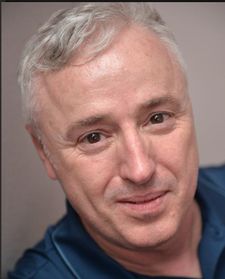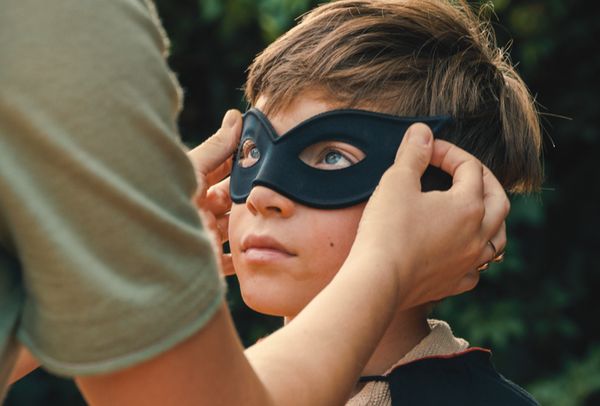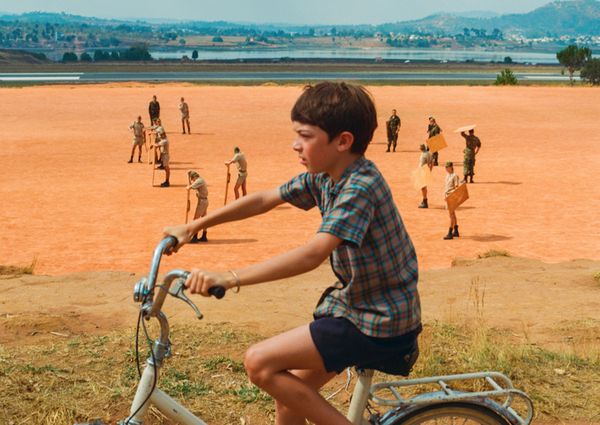 |
| Robin Campillo: 'I felt I owed something to the people of Madagascar who are still waiting for France to recognise this part of their story' Photo: UniFrance |
Set in Madagascar in the early 1970s the narrative takes place a decade after the island became a Republic, but still has ties to their former ‘colonisers’, notably with the continuing presence of the French army and air force.
“I wanted it to be seen as widely as possible and to throw light on a neglected chapter. My previous film [120 Beats Per Minute] would not have had the same impact if it had not been shown at the Cannes Film Festival. I made my case to Thierry but in the end he was not convinced. The film was released in France just after the festival and it did not do so badly. I felt I owed something to the people of Madagascar who are still waiting for France to recognise this part of their story. So I was disappointed for them that it did not get all the attention it would have had as part of the festival.”
Campillo grew up on the army base. “My father was in the military and we lived there as a family. Many of the anecdotes are real but, of course, it’s fiction and a fantasy that I imagined. I would have been around the age of nine or ten at the time and everything is a bit blurred in childhood, especially around subjects that you do not understand. But I had a vivid imagination and recorded in memory all the things going on around me. I existed in an empty space that was filled by all these characters which were my family and friends.”
He was born in Morocco in 1962 and the family (parents Marcel and Simone) also lived in Algeria for a spell before moving to Madagascar. “I guess I was living through the last vestiges of France’s imperial power. When I came back to France I had this kind of nostalgia which I did not know what to do with. It was weird. I knew something was wrong but I did not understand what it was. It was, of course, a colony and was a paradise for some but hell for a lot of the people who lived there. I wanted to make a film about this paradise with a child who goes outside and discovers the back stage of all that - the truth behind the illusion. I was seeking to destroy this nostalgia and to be honest about the situation. I wanted to give back something to this country that had had such an effect on me.”
For the purpose he created his screen surrogate Thomas (played by Charlie Vauselle) who is obsessed with comics and intrigued by the lives of the adults around him. He is influenced by his reading of the adventures of the intrepid comic book heroine Fantômette (created in 1961 by Georges Chaulet) . Much the narrative is filtered through the eyes of the youngster from various vantage points, either under the table or behind closed doors, and in his friendship with his Vietnamese co-conspirator Suzanne (Cathy Pham).
This is the openly gay filmmaker's fourth feature film after They Came Back, Eastern Boys and 120 BPM (Beats per Minute). The adult cast includes the Spaniard Quim Gutiérrez, Nadia Tereszkiewicz, Sophie Guillemin, Hugues Delamarliere, and David Serero among many. Campillo loves making films with large ensemble casts.
"My films are in a way like Shakespearean plays which always have a lot of characters. It is interesting because the film is like a space between the characters, populated by this little army of people. I like to be overwhelmed by them. Put them in front of the camera, push them forward as if into a big pool and see if they can swim. For that you have to have good actors … and if you do then you can leave them to get on with it.”
When he was about 10 (and by this time in Madagascar), he saw Jean-Luc Godard’s sci-fi film Alphaville which was roundly booed by the soldiers, but for Campillo it was the early stages of a lifelong obsession with the New Wave, especially Godard, Éric Rohmer and Agnès Varda. In an earlier interview he told me: “I wanted to be a film-maker from the age of six. I was obsessed and I really thought it would be easy for me. I was very naive and pretentious.”
When the family came back to live in France they settled around Pau in the south-west. He found the country rather sad and grey. “We were also rather poor because my father was better paid when he was abroad. At one point my parents thought of resettling in Morocco and we set off to live there for a while. In the end we realised that it was not our place, and we were like tourists. It felt absurd to be there, and I was so unsettled I had a mental breakdown. It was just as hard for my parents, because this had been their life.”
Red Island is released in cinemas and exclusively on Curzon Home Cinema from 1 March
























